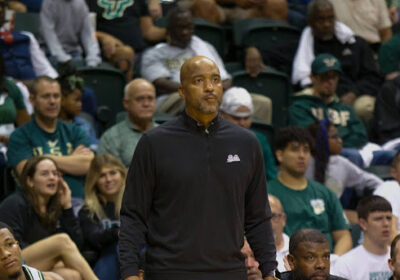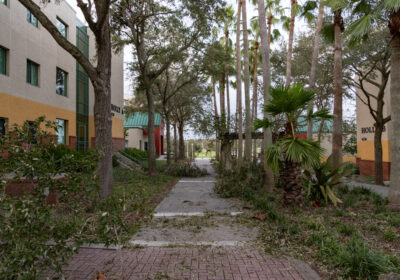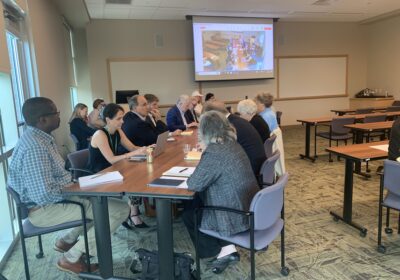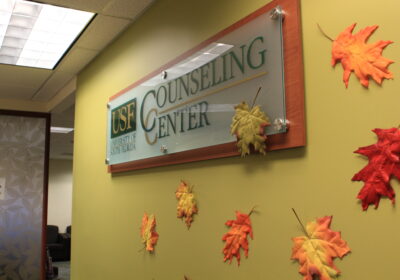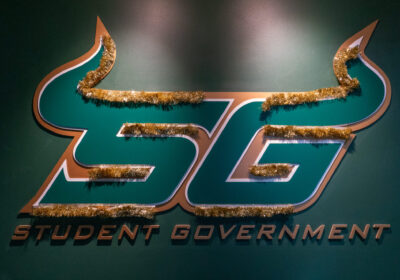A closer look at the future changes to the College of Education

After many months of conversation regarding the future of the College of Education’s (COE) undergraduate programs, a settlement was made on what its structure will look like to meet budget cuts posed by the pandemic.
While the COE undergraduate program will remain as its own entity for future students to enroll, changes will be made to its program offerings. Once the tangible results of the Strategic Budget Realignment Plan are set in place, the undergraduate COE will have four four-year degree programs: elementary education, secondary education, special education and early childhood education.
The change to maintain selective undergraduate programs at the COE was announced Nov. 10 after months of backlash from the USF and Tampa Bay community. The college currently offers 12 degree programs at the Tampa campus, two at the St. Pete campus and one at the Sarasota-Manatee campus.
“Pretty much all of the programs that we have delivered in undergraduate education … are going to fall under those umbrellas,” said Interim Dean of the COE Judith Ponticell. “So you think of it as a central degree with a much broader focus on what it means to be a master teacher. And then, individual coursework that might apply to a particular area.
“Now early childhood education needless to say is very different from elementary education. Elementary education is different from secondary and different from exceptional students, and we know that, and that’s why we still have those four large content areas because they’re very much needed.”
Secondary education — middle school and high school education — is currently the faction of teaching that is divided the most between individual subject areas like physics, chemistry, biology or social sciences.
“We’re going to merge those secondary education programs so that rather than having a bachelor’s in English education, a bachelor’s in math education, etc., we have a bachelor’s in secondary education, where there is that common curriculum that focuses on those skills of a master teacher,” said Ponticell.
Molding future students into “master teachers” is the approach the COE will take as it adjusts how its programs operate as well.
“One of the things that our superintendents focused on is their need for elementary teachers in particular who have much deeper knowledge of exceptional student education,” said Ponticell. “And so by focusing more on, again, those master teacher skills in exceptional student education, rather than all the little small content areas, we go from maybe five singular degrees into a single, much stronger degree.”
Through meeting with superintendents in the Tampa Bay community’s school districts, Ponticell said they also expressed interest in a “four-year teacher education program.” This program structure is different from how the COE currently operates, with students spending their first two years completing general education requirements in a “pre-education major declaration” before entering two years of focused education on schooling in their degree concentration.
“We want to be able to have our freshmen, who declare as education majors, to be engaged with education in freshman year,” said Ponticell. “So that we can do very developmental and incremental approaches to their being in contact with K-12 and pre-K-12 students as early as freshman year, and then sophomore year, and then junior year and in that senior year.”
Under the new program plans, there is a possibility of year-long internships in schools in the public school district during students’ senior year, according to Ponticell, opposed to semester-long internships. They might even be paid, she said.
“[Full-year internships] are very appealing to our public school partners to be able to do that, but it’s also very different from the way that we have been doing teacher preparation so far,” said Ponticell.
All of these structural changes won’t be visible for a while, as they must be approved by necessary governing bodies such as the Southern Association of Schools Commission on Colleges, the State University System as well as USF’s own internal processes for curriculum changes.
“It’s not something that’s going to happen overnight. It’s one of the reasons why we have this two-year period, to be able to look at how we might work through this and how we have to go through all the bells and whistles in order to get the improvements done,” said Ponticell.
“But bottom line, what students can be assured of is that we are accepting students into our degree programs as they are.”
Even if the time for change approaches while students are completing their degrees under what the COE currently offers, they will still be able to pursue their degree to completion.
“Students will be having the opportunity to complete the degree program they came in for and if they wanted to take a course in a new program to substitute, they could,” said Ponticell. “So there are a lot of things that can be done to be sure that students complete their degrees, number one, but also have an easy transition from one to the other.”
Another significant change to the college’s structure could be seen much sooner with a new dean expected to be selected by July 1, according to Ponticell. She expects that a job description for the dean position will be finalized this week by the search committee.
“In the best case scenario, we would be able to bring the dean on board on July, 1, which is a very typical starting time for a dean,” said Ponticell.
Moving forward with the changes, Ponticell emphasized the importance of the college to adapt to the needs of the community.
“Colleges need to grow, colleges need to change to be responsive,” she said. “And that’s what this college is trying to do so that we can serve our partners better.”

